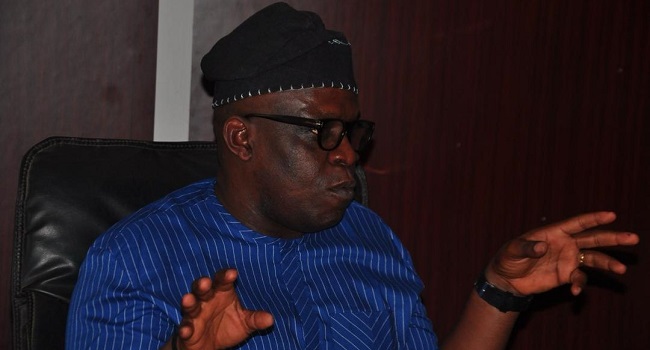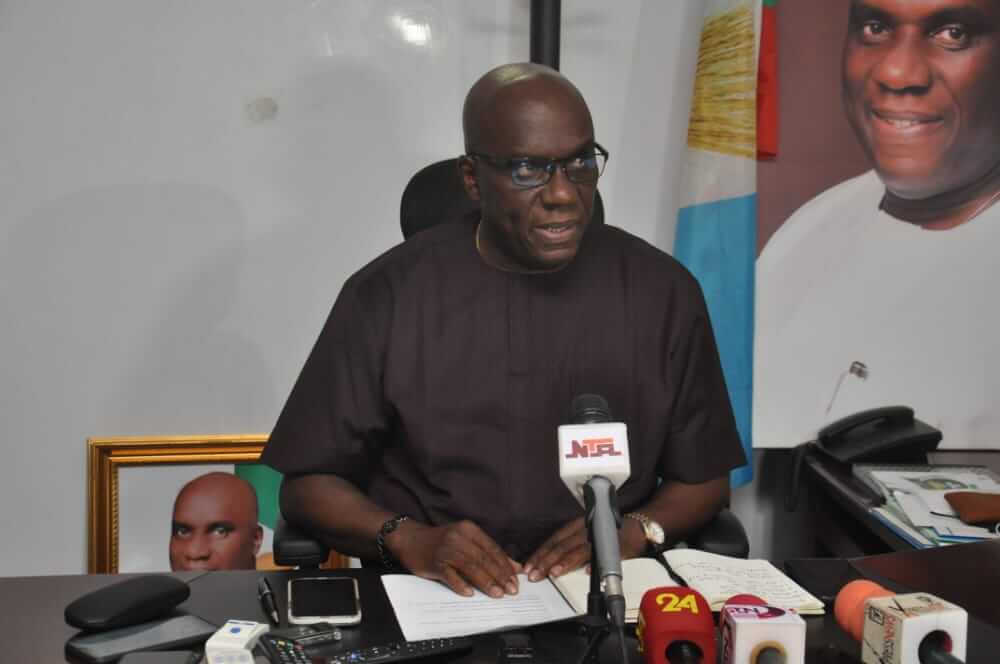The telecommunications sector is foundational to Nigeria’s modern economy. Its sustainability is not merely an industry concern but a national priority. Operators, regulators, government, and consumers must work together to balance affordability with the need for growth and investment. Measures like a market-reflective pricing regime are essential to secure the sector’s future. By addressing challenges collectively, stakeholders can ensure that the industry continues to power the economy, support businesses, and enrich the lives of millions of Nigerians daily.
Telecommunications services are indispensable in modern life, enabling seamless communication, powering businesses, and supporting vital sectors such as finance, education, and healthcare. As the backbone of Nigeria’s digital economy, the telecommunications industry plays a pivotal role in national development, contributing 14.58 per cent to the country’s GDP. With the current government’s vision of growing Nigeria’s economy to a trillion-dollar GDP, telecommunications and digital services are expected to be major contributors. To achieve this vision, all stakeholders — government, regulators, operators, and other industry players — must collaborate to ensure the sector remains healthy and sustainable.
Pressures on the Telecommunications Industry
For over a decade, Nigeria’s telecom industry has faced significant economic challenges, including forex volatility, inflation, and currency devaluation, all while maintaining stable tariffs. This commitment to affordability has kept millions connected but at a considerable cost to the industry.
Recently, operational expenses have surged by over 300 per cent, driven by inflation, currency devaluation, and other macroeconomic factors. Over the last 18 months, operators have absorbed these escalating costs, straining their ability to maintain and enhance service quality. The effort to keep prices stable has resulted in compromises in network reliability, coverage, and overall service experience.
The industry recognises that telecommunications services are essential to daily living and strives to balance affordability with sustainability. However, without decisive action, the sector risks stagnation, threatening its ability to attract the necessary investment to maintain and improve infrastructure. A “do-nothing” approach will lead to further declines in service quality, harming consumers and undermining Nigeria’s digital future.
Public sector initiatives, such as the government’s rollout of 90,000 kilometres of fibre infrastructure through the Ministry of Communications and Digital Economy, aim to deepen broadband penetration and expand digital services beyond urban centres. These initiatives will unlock opportunities for businesses, individuals, and communities, fostering economic growth and social inclusion.
Ensuring Sustainability
Nigerians need credible journalism. Help us report it.
Support journalism driven by facts, created by Nigerians for Nigerians. Our thorough, researched reporting relies on the support of readers like you.
Help us maintain free and accessible news for all with a small donation.
Every contribution guarantees that we can keep delivering important stories —no paywalls, just quality journalism.
Telecom operators remain committed to keeping Nigeria connected despite these challenges. Significant investments have already been made in the sector, and operators continue to seek solutions that ensure sustainability. A market-reflective pricing regime is essential for sustaining operations, improving service quality, and attracting further investments. This is not about expanding profit margins but about securing the industry’s future and its ability to power Nigeria’s economy.
Investing in a Digital Future
The telecommunications sector is rapidly evolving, with data usage now surpassing voice as the primary revenue driver. Data demand has been growing by over 40 per cent annually, compelling operators to invest in expanding their 4G infrastructure and, in some cases, deploying 5G technology.
In addition to wireless broadband, there is a need to deepen the penetration of fixed broadband technologies, such as fibre-to-the-home and fibre-to-enterprise solutions. Innovations like Low Earth Orbit (LEO) satellite-based broadband are also being introduced to meet growing consumer demands and enhance Nigeria’s global competitiveness.
Public sector initiatives, such as the government’s rollout of 90,000 kilometres of fibre infrastructure through the Ministry of Communications and Digital Economy, aim to deepen broadband penetration and expand digital services beyond urban centres. These initiatives will unlock opportunities for businesses, individuals, and communities, fostering economic growth and social inclusion.
Government support is crucial for the telecommunications sector’s sustainability. We commend the government’s efforts to address systemic challenges such as multiple taxation, high right-of-way charges, and infrastructure vandalism through initiatives like the Critical Infrastructure Protection Bill. Implementing these measures will significantly enhance operational efficiency and the sector’s capacity to meet consumer demands.
At 9mobile, we have secured the necessary investments to transform and reposition our business. We are modernising and expanding our network infrastructure to improve service quality. Despite challenges in recent years, we are committed to restoring the high-quality experiences our customers deserve. Our investments will enable us to capitalise on the growth in mobile and fixed broadband services, positioning 9mobile as a leading digital lifestyle provider.
Government and Industry Stakeholder Collaboration
Government support is crucial for the telecommunications sector’s sustainability. We commend the government’s efforts to address systemic challenges such as multiple taxation, high right-of-way charges, and infrastructure vandalism through initiatives like the Critical Infrastructure Protection Bill. Implementing these measures will significantly enhance operational efficiency and the sector’s capacity to meet consumer demands.
Collaboration between the Central Bank of Nigeria (CBN) and the Nigerian Communications Commission (NCC) has also resolved the longstanding USSD debt issue, alleviating financial strain on telecom operators. Additionally, policies fostering spectrum sharing and active infrastructure sharing can create efficiencies, avoiding infrastructure duplication and reducing costs. The success of passive infrastructure sharing has already given rise to new industry players such as TowerCos, InfraCos, and data centre businesses. Active sharing will further sustain broadband and digital service growth.
A Shared Responsibility
The telecommunications sector is foundational to Nigeria’s modern economy. Its sustainability is not merely an industry concern but a national priority. Operators, regulators, government, and consumers must work together to balance affordability with the need for growth and investment. Measures like a market-reflective pricing regime are essential to secure the sector’s future. By addressing challenges collectively, stakeholders can ensure that the industry continues to power the economy, support businesses, and enrich the lives of millions of Nigerians daily.
Obafemi Banigbe is the CEO of 9Mobile.
Support PREMIUM TIMES' journalism of integrity and credibility
At Premium Times, we firmly believe in the importance of high-quality journalism. Recognizing that not everyone can afford costly news subscriptions, we are dedicated to delivering meticulously researched, fact-checked news that remains freely accessible to all.
Whether you turn to Premium Times for daily updates, in-depth investigations into pressing national issues, or entertaining trending stories, we value your readership.
It’s essential to acknowledge that news production incurs expenses, and we take pride in never placing our stories behind a prohibitive paywall.
Would you consider supporting us with a modest contribution on a monthly basis to help maintain our commitment to free, accessible news?
TEXT AD: Call Willie - +2348098788999


















 English (US) ·
English (US) ·